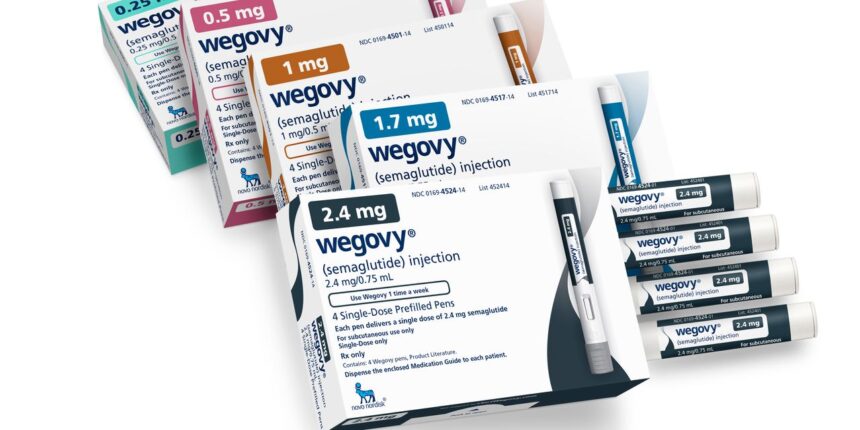Morgan Stanley on Friday lifted its forecast for annual sales of weight-loss drugs to $77 billion, as patient demand for the medicines has outstripped supply and been fueled by a social-media frenzy.
The Wall Street firm had previously estimated the market size by 2030 would be $54 billion.
Already, the analysts say Novo Nordisk’s Wegovy could have topped $7 billion in sales this year if it didn’t have supply-chain shortages. And they note that already, insurers have shown the willingness to reimburse 40 million, out of the estimated 110 million with prevalence of adult obesity.
Wegovy is an injectable drug for obesity, while a very similar product called Ozempic is prescribed for diabetes but also has a weight-loss benefit.
“The greater focus on weight management has spilled over into an increasingly weight-centric approach to treating diabetes. We anticipate that over the next 24 months, this weight-centric focus will broaden into new health complications, including heart failure, sleep apnea and kidney disease, which will expand reimbursement into the U.S. Medicare population,” says the note, which counts 16 analysts as contributors.
Related: Weight-loss drugs in development aim to replace injections with pills
Novo Nordisk
NVO,
NOVO.B,
and Eli Lilly
LLY,
will be the main beneficiaries, with 82% of the obesity market split almost equally between them, they say.
Morgan Stanley’s Eli Lilly price target was increased to $560 from $551, making it tied for the second-highest on Wall Street, according to FactSet. Novo Nordisk’s price target was kept at 1,210 kronor, pretty close to the average target on the Danish drug maker. Pfizer’s target was lowered by a dollar to $42.
Biopharmas are hoping to capture a slice of the pie, with firms having drugs in the pipeline including Zealand Pharma
ZEAL,
Structure Therapeutics
GPCR,
Sciwind Biosciences , Regor Therapeutics and Altimmune
ALT,
the report says.
The research paper notes the potential entry of Pfizer
PFE,
Merck
MRK,
AstraZeneca
AZN,
and Novartis
NOVN,
That could help lower prices — the GLP-1 class of medicines are priced at between $931 and $1,023 per month in the U.S., and get rebates of more than 60%, while the same drugs for treating obesity are priced at $1,349 per month and attract 40% rebates. The analysts say the drug will fall to about $520 per prescription in 2025, down to $402 in 2030.
Contract drug makers that can help the market include Bachem
BANB,
Corden Pharma and WuXi AppTec
603259,
and Catalent
CTLT,
Gerresheimer
GXI,
West Pharmaceuticals Services
WST,
and Schott providing fill and finish and delivery device infrastructure.








